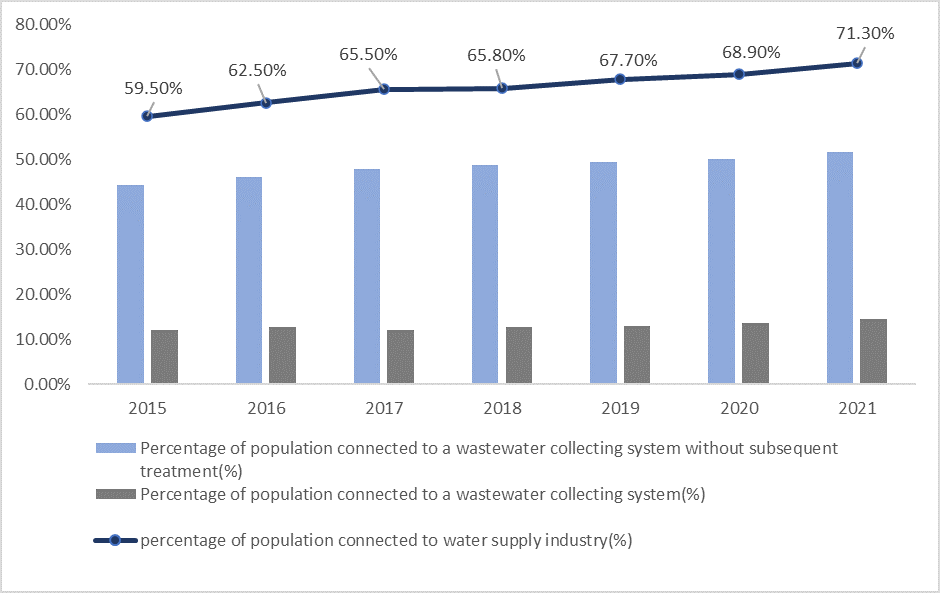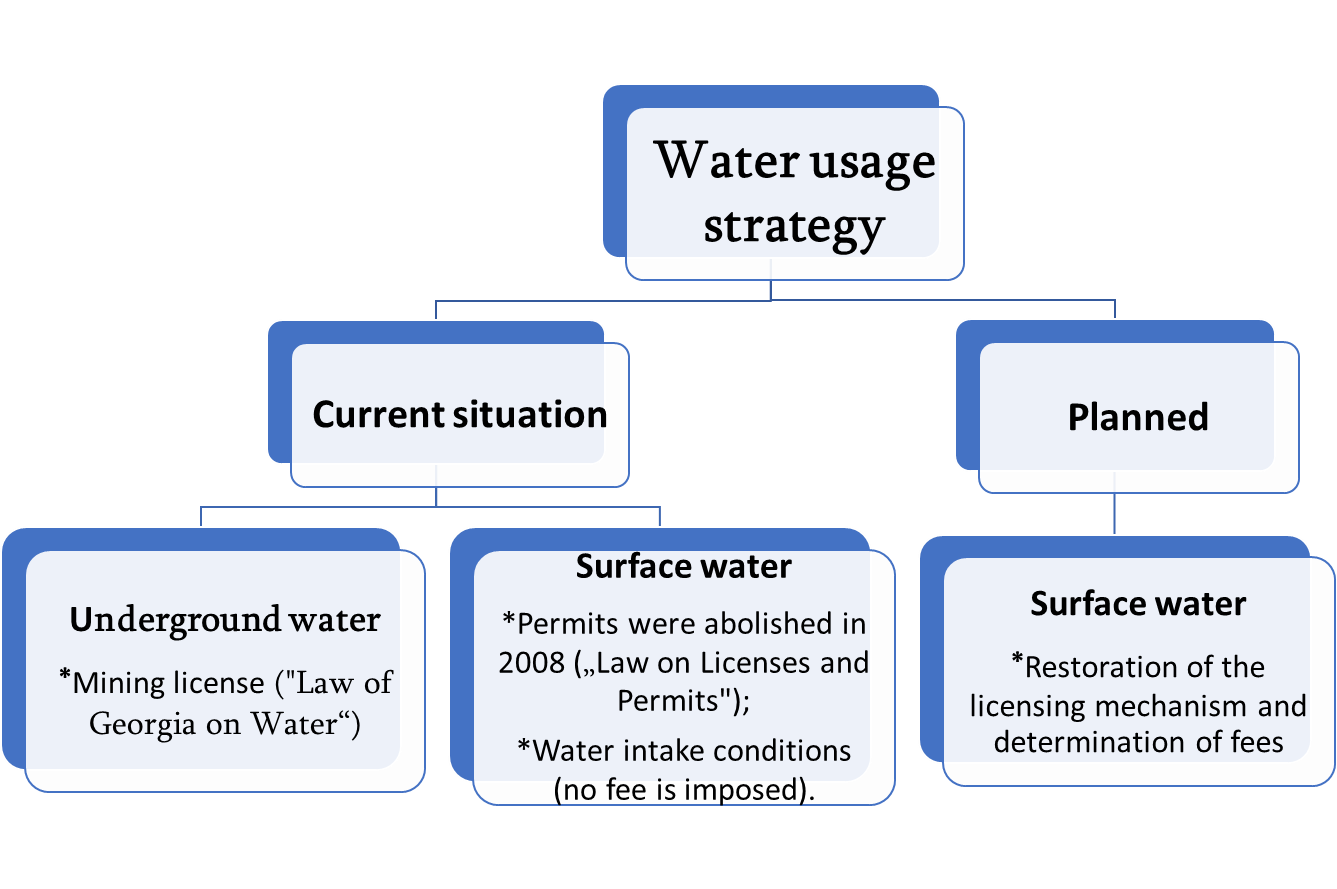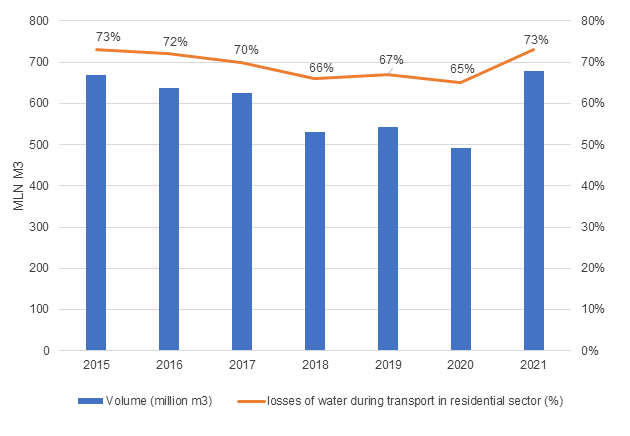 10
October
2022
10
October
2022
ISET Economist Blog
 Wednesday,
31
May,
2023
Wednesday,
31
May,
2023

 Wednesday,
31
May,
2023
Wednesday,
31
May,
2023
In Georgia, a new law on “Water Resources Management" has been drafted, which involves significant and complex legislative changes. The country will have a new, unified system of managing water resources based on international approaches after the proposed law is implemented, satisfying the requirements set forth in the Association Agreement (AA) concluded with the European Union (EU). The establishment of a basin management system and the introduction of cost-effective water consumption tools would increase the network for monitoring water resources and preventing water pollution.
The new draft law on water resources management will replace the outdated "Law of Georgia on Water", which was enacted in 1997 but was not implemented with a clear and coherent strategy, resulting in a "useless and fragmented system" (UNECE) in the country. For instance, the previous legal framework was incapable of regulating the ownership, possession, and use of rights associated with water bodies, as well as ensuring the rational use of surface and underground water resources and the prevention of water pollution. In addition, a large volume of water is lost in the country when water resources are managed under the previous law, which has a negative effect on natural resources.
Against the backdrop of the aforementioned challenges, there are high hopes for the new draft law on water resources management, despite the fact that the existing reform has not been completely implemented and therefore it is not yet possible to evaluate these expectations. Nonetheless, based on an analysis of several critical indicators related to the proposed legislation, this blog will attempt to discuss the aforementioned flaws and possible consequences.
The new draft law on water resources calls for the development of a River Basin Management Plan (RBMP) for each basin, which, according to the ordinance, must be renovated every six years. The basins' management plans must be formulated so as to strike a balance between the interests of water users and the maintenance of the water's ecological status. The Ministry of Environmental Protection and Agriculture of Georgia, as the agency initiating the changes, states: "Currently, water resources are managed centrally and not within the geographical boundaries of one or more water bodies - at the level of the river basin/basin area, which makes sustainable use of water resources impossible. The basin management model, on the other hand, suggests an integrated strategy that, based on the experience of various countries throughout the world, enables sustainable use of water resources.”
The draft law calls for the creation of a water prioritization plan for each river basin in order to develop new prioritization rules for the use of water resources, which will fill gaps in the old law and allow for the avoidance of conflicts between different economic sectors, as well as the provision of safe drinking water to the country's population.
Chart 1. Water quality assessment

Source: National Statistics Office of Georgia
According to data published by the National Statistics Office of Georgia (www.geostat.ge), only 51.5% of the country's population was connected to the water supply network as of 2021, and 14.5% of those were connected to the water supply network without wastewater treatment. Despite the fact that the percentage of the population connected to the water supply system has increased from 59.5% in 2015 to 71.3% in 2021, only 37% of domestic wastewater was treated in 2021, which is the highest rate in the previous six years and highlights problems such as pollution of water bodies, untreated municipal wastewater, and a lack of safe drinking water in the country. Experts working on the draft law also highlight these challenges. At the public-private dialogue event held in 2022, Mrs. Nino Tandilashvili, Deputy Minister of Environment Protection and Agriculture of Georgia, stated that "the most fundamental aspect of the water resources management reform is the introduction of regular and extensive monitoring of water quality and quantity, as the data obtained from monitoring serves as the basis for the creation of river basin management plans and water resources prioritization plans."
Consequently, the establishment of a basin system in the country raises hopes that a safe environment for human health will be created in Georgia and that the existing data will be substituted with positive indicators; however, in order to achieve the aforementioned results, it is necessary to incur certain costs and implement a water usage fee.
The new legal framework for water resources includes the introduction of economic instruments for water consumption, which will provide the appropriate incentives for water users and contribute to the rational use of the aforementioned natural resource and the prevention of water bodies’ pollution. One of the most important aspects of the reform is the reintroduction of the surface water use licensing mechanism, which was canceled in 2008 for multiple reasons, and since then the water usage fee has only existed for underground water, despite the fact that the new draft law aims to promote rational water use by imposing a water abstraction fee from surface water bodies as well. By enacting the proposed law in 2024, the aforementioned regulation will go into effect, and prior to that, a specific fee amount will be determined, which will not be a heavy burden on users and will not impede the development of the business sector. As a result, the conflict between water users will be avoided, and the development of new industries will be facilitated.
Figure 1. Water usage strategy

Nino Tandilashvili notes that the Ministry is conducting a comprehensive study with the assistance of the Organization for Economic Cooperation and Development (OECD) to guide the process of determining the amount of the fee, and the precise amount will be determined only after a cost-benefit analysis and a thorough discussion of the issue with the private sector. "After the implementation of the law, the new permit system will affect any operator, whether it is an industrial facility or a hydropower plant, as well as anyone whose activities require water consumption. This is to provide the state with accurate information about who consumes how much water and how much water is required for each activity. This will be assessed during the permit issuance process. This is the primary objective of the new regulations. Similar principles apply in the vast majority of European Union member states” - The Deputy Minister of Environment Protection and Agriculture noted in one of the interviews.
The assumption that the transition to a basin management system will provide more opportunities to control water resources and that the introduction of economic instruments for water consumption will create certain incentives for water users to use water rationally leads to the optimistic expectation that less water will be lost and gradually decrease throughout the country. In a country with abundant water resources, the problem that stands out the most is the water loss in the domestic sector, which is increasing rather than decreasing over time and has reached an alarming level. 73% or 678 million m3 of natural resources were lost during water transportation in 2021, which is an increase of 8 percentage points compared to the previous year (65%).
Chart 2. Transportation-related loss of water in the domestic sector

Source: National Statistics Office of Georgia
The aforementioned data illustrate the troubling truth about water resources and the negative effects of an old law.
On the basis of the presented critical indicators, it is possible to have positive expectations for the new legal framework for water resources management. However, due to the lack of data and the incomplete implementation of the law, it is too early to draw any conclusions. Furthermore, it will take time for the reform to be fully accepted, established, and implemented. We will see the results of the reform with respect to the discussed indicators over time.
For a comprehensive evaluation of the reform of water resources management, greater transparency in the country and the measurement of indicators that are not currently produced in Georgia are essential. These indicators include permits issued for water abstraction from surface water bodies and the resulting fee, water balance, water bodies with the status of "good water," and river basin management plans.
USAID. (December 2021). SYSTEMS APPROACH POLICY VALUE CHAIN ANALYSIS WATER RESOURCE MANAGEMENT REFORM.
account, 2. year. (2020). Chapter 3: Water resources management pg.32-51. Retrieved from2017-2020 Report of the Third National Program of Environmental Protection Actions of Georgia: https://06f5c6a6-5676-4be5-ae60-fda18c5f0e24.usrfiles.com/ugd/df872d_e6ce2ba905cb4a89ae6e2e035ced608c.pdf
Gogberashvili, E. (2021, Georgia will have a "Water Resources Management" law. Retrieved from BM.GE: https://bm.ge/ka/article/saqartvelos-wylis-resursebis-martvis-shesaxeb-kanoni-eqneba/90623/
Gogebashvili, E. (2022, November 29). The new water law - what changes for business?Retrieved from BM.GE: https://bm.ge/ka/article/wylis-axali-kanoni---ra-icvleba-biznesistvis/121654/
ISET POLICY INSTITUTE (2020, April 19). Retrieved from PUBLIC-PRIVATE DIALOGUE (PPD) ON WATER RESOURCE MANAGEMENT REFORM: https://iset-pi.ge/storage/media/other/2022-06-07/48a506d0-e627-11ec-807d-9f3cd4f3100e.pdf
Mariam Chachava, Maka Chitanava. (n.d.). Retrieved from economic instruments of water resources management of Georgia: https://iset-pi.ge/storage/media/other/2021-10-06/9551c730-2675-11ec-a7d0-2fb24b267eb3.pdf
Reformeter. (n.d.). WATER RESOURCE MANAGEMENT REFORMRetrieved from https://reformeter.iset-pi.ge/ka/reforms/cqlis-resursebis-martvis-reporma/etapi-2-paza-1
* * *
DISCLAIMER: This blog article is made possible by the support of the American people through the United States Agency for International Development (USAID). The contents of this blog do not necessarily reflect the views of USAID or the United States Government.





